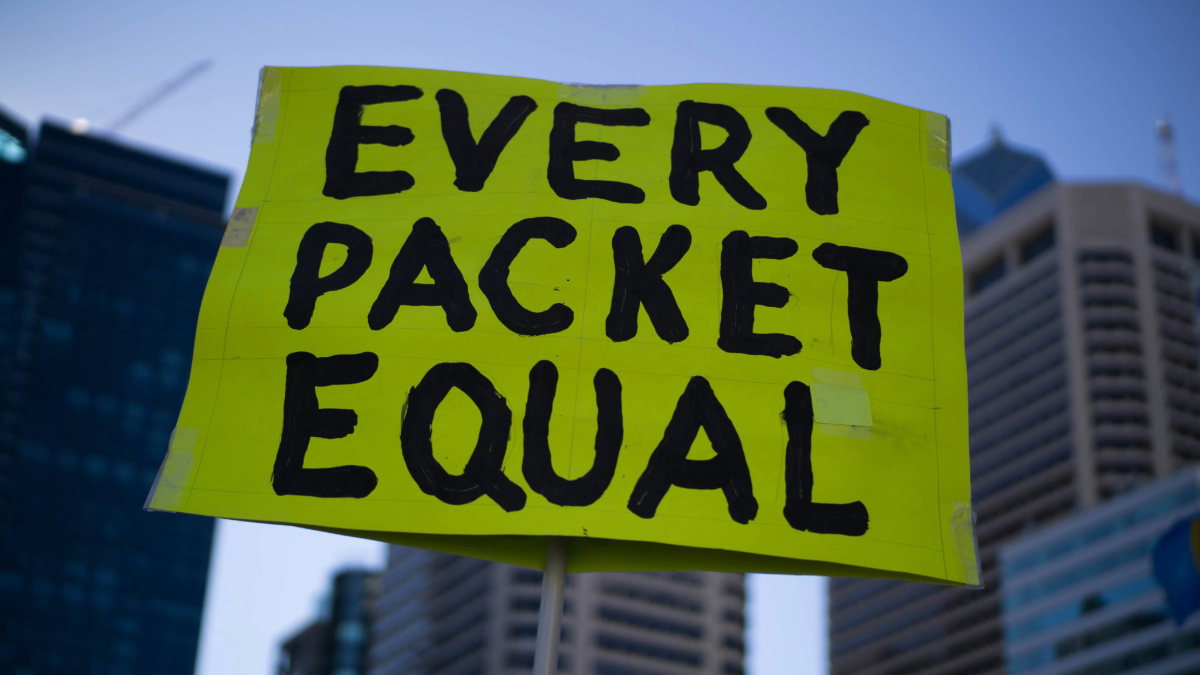Court Pulls Plug on Net Neutrality
Justin Hendrix / Jan 2, 2025Today, the US Sixth Circuit Court of Appeals dealt a blow to the outgoing Biden administration's net neutrality regulations, ruling that the Federal Communications Commission (FCC) lacks the statutory authority to regulate broadband providers as common carriers.
Using “the traditional tools of statutory construction,” id., we hold that Broadband Internet Service Providers offer only an “information service” under 47 U.S.C. § 153(24), and therefore, the FCC lacks the statutory authority to impose its desired net-neutrality policies through the “telecommunications service” provision of the Communications Act, id. § 153(51). Nor does the Act permit the FCC to classify mobile broadband—a subset of broadband Internet services—as a “commercial mobile service” under Title III of the Act (and then similarly impose net-neutrality restrictions on those services). Id. § 332(c)(1)(A). We therefore grant the petitions for review and set aside the FCC’s Safeguarding Order.
The court's January 2 decision is the latest twist in a years-long regulatory saga that has swung back and forth with changing administrations. It sets aside the FCC’s 2024 Safeguarding and Securing the Open Internet order, which largely restored 2015 rules that were cast aside in 2017. In August 2024, a federal appeals court blocked the new rules from going into effect.
The Supreme Court's 2024 Loper Bright decision is central to the appellate court ruling. That decision overturned the longstanding Chevron doctrine of judicial deference to federal agency interpretations of law.
"Following Loper Bright, we cannot agree with petitioners that Brand X expressly bars the FCC's order at issue," Judge Richard Griffin wrote in the Sixth Circuit panel’s unanimous opinion, referencing the Supreme Court’s 2005 decision in National Cable & Telecommunications Ass'n v. Brand X Internet Services, which invoked Chevron deference.
Instead of deferring to the FCC's interpretation, the Sixth Circuit conducted its own analysis of the Communications Act's meaning. The court found that broadband providers offer an "information service" rather than a "telecommunications service," placing them beyond the FCC's common carrier authority. The ruling also rejected the FCC's attempt to regulate mobile broadband as a "commercial mobile service," finding that it does not meet the statutory requirement of interconnection with "the public switched network." "We see nothing in the statute that permits the FCC to effectively change the statute's original meaning of 'the public switched network' ... by adding 'public IP addresses' to adapt to new technology," the court observed.
FCC Commissioner Brendan Carr, President-elect Donald Trump’s pick to lead the Commission, hailed the court’s ruling in a statement posted on X. “I am pleased that the appellate court invalidated President Biden’s Internet power grab by striking down these unlawful Title II regulations,” he wrote. “But the work to unwind the Biden Administration’s regulatory overreach will continue.”
Advocates for net neutrality decried the decision.
“Beyond being a disappointing outcome, today’s 6th Circuit opinion is just plainly wrong at every level of analysis,” wrote Free Press Vice President of Policy and General Counsel Matt Wood. “The decision missed the point on everything from its granular textual analysis and understanding of the broader statutory context, to the court’s view of the legislative and agency history, all the way to its conception of Congress’s overarching policy concerns.”
“Today’s ruling to overturn net neutrality will have a devastating effect on free speech online," said Jenna Leventoff, senior policy counsel at the ACLU, in a statement. “Internet rights are civil rights. It is imperative that Congress act now so that everyone can have access to a free and open internet.”
The decision effectively ends the FCC's latest attempt to impose net neutrality rules, but it does leave open the possibility of congressional action, however unlikely it may be in the next Congress. In her statement following the decision, current FCC Chairwoman Jessica Rosenworcel called for legislators to act.
“Consumers across the country have told us again and again they want an internet that is fast, open and fair,” she wrote in a post on Bluesky. “With this decision it is clear Congress now needs to heed their call, take up the charge for net neutrality and put open internet principles in federal law.”
Authors

